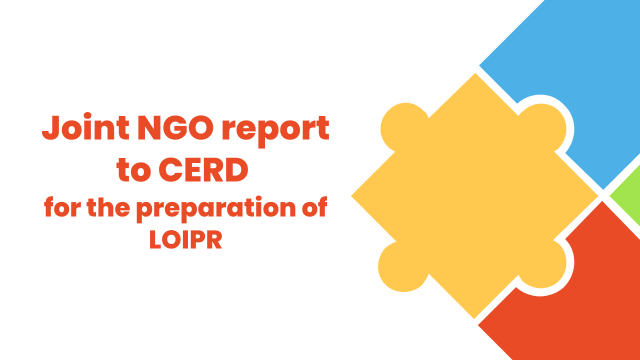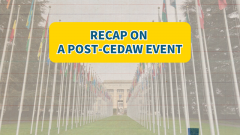OISL report and transitional justice in Sri Lanka (HRC30, 2015, OS)
September 30, 2015
IMADR delivered its oral statement on “OISL report and transitional justice in Sri Lanka” at the 30th session of the Human Rights Council. Whole text can be read below or downloaded here. ![]()
———
IMADR Oral Statement: 30th session of the Human Rights Council
Item 2: High Commissioner’s report on Sri Lanka
30 September 2015
Thank you Mr. President,
IMADR and Rights Now Collective for Collective for Democracy welcome the OISL report and the recommendations of the High Commissioner. We regret that it took six long years for the international community to recognise the violations of human rights and humanitarian law, war crimes, crimes against humanity and gruesome gender based violence happened in Sri Lanka by both sides of the conflict. Local and international NGOs including victims and survivors continuously called upon this Council to investigate into these incidents while some Member States supported the previous Government using the blanket of sovereignty.
IMADR has worked with all stakeholders including the diaspora for many years amidst threats and risk to lives of our leadership and activists. We are witnessing the new hope in Sri Lanka, as all communities converge to map out a path for peace, reconciliation and restoration of dignity for all citizens. The era of Constitutional authoritarianism in the name of sovereignty applied by the former regime is defeated by the people through a ballot. The struggle to uphold human rights, democracy and rule of law has won the day. We congratulate the new political leadership in Sri Lanka for acknowledging the need to address the challenges for human rights and justice in a constructive manner, which is prerequisite for lasting peace in Sri Lanka. We urge the political leaders to respect the pledges given to victims, survivors and human rights defenders for justice and guarantee of non-recurrence.
As the High Commissioner stated, “it is imperative that the Government seizes the unique opportunity it has to break the mold of impunity once and for all.” Further, the OISL concluded that “incidents of sexual violence were not isolated act; that it was part of an institutional policy within the security forces.” It is now required to introduce legal and security sector reforms and the establishment of an ad-hoc hybrid court. We urge the GOSL to consider signing the Rome Statute. We urge the GOSL to fully implement all the recommendations effectively and in a meaningful manner. It is important that all the documents are translated accurately into Sinhala and Tamil to assist in a constructive dialogue. The time has come for healing wounds, IMADR will support all efforts together with victims, survivors, peace-loving people and democratic forces of Sri Lanka.
Thank you Mr. President.





